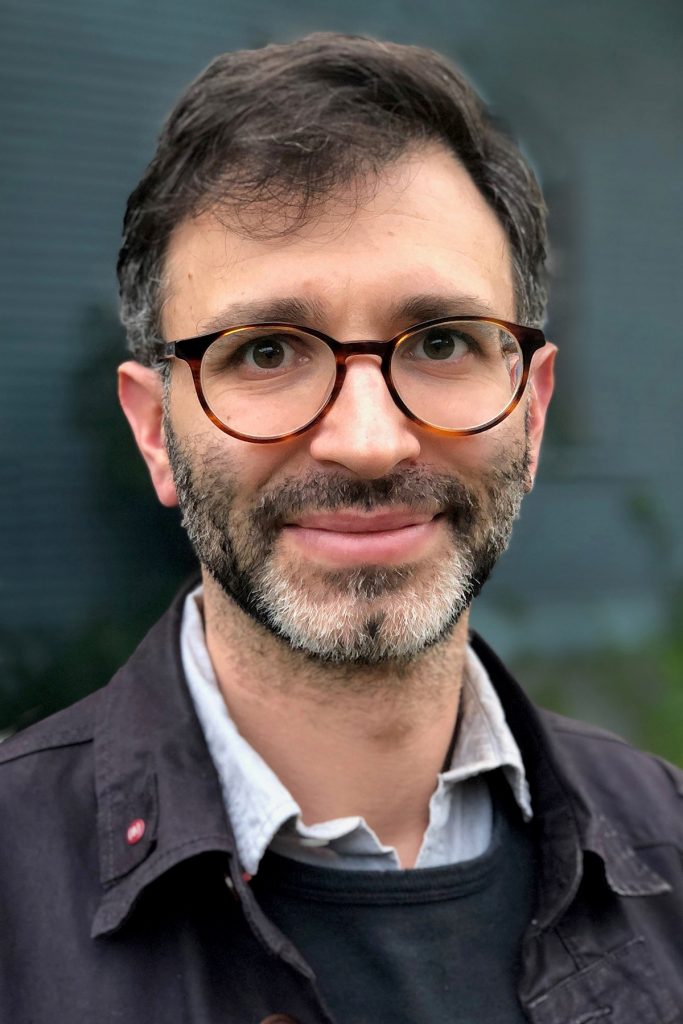Adam R. Rosenthal

- Areas of Speciality
-
- International Studies
- Contact
-
- (979) 845-2124
- arrosenthal@tamu.edu
- ACAD 331
- Professional Links
Bio
B.A. in Philosophy from Pennsylvania State University
Ph.D. in Comparative Literature from Emory University
Dr. Rosenthal’s research interests include Literary Theory, Science and Technology Studies, Deconstruction, Continental Philosophy, and Nineteenth-Century European and American Literature. His work is particularly focused on the intersections of philosophical inquiry, literary writing, and the sciences, and questions concerning the biological, existential, and mechanical limits of life. His first book, Poetics and the Gift, diagnoses the Western poetic tradition’s determinative association of poetry with giving, while his second book, Prosthetic Immortalities, explores the historical and conceptual roots of transhumanist thought in order to develop a theoretical account of immortality broad enough to encompass modern biological notions of life as well as classical conceptions of the soul. He has published essays in SubStance, Poetics Today, Research in Phenomenology, Modern Language Notes, and the Oxford Literary Review, on topics such as Romantic poetry, cloning, Derridean deconstruction, and indefinite life. He currently serves as Associate Editor for the journal Derrida Today.
For a recent interview on his research and the significance of humanities scholarship today:
https://liberalarts.tamu.edu/glasscock/2022/11/21/illuminating-humanities-adam-rosenthal/
Current Research Projects
Dr. Rosenthal’s current book project, Robothanatology: Theorizing Life and Death through Mortal Machines, explores the implications of a new trend in robotics focused on engineering machines that possess physical and functional vulnerability. In it, he asks: What does the prospect of vulnerable, or so-called “soft robots,” mean for philosophical and biological concepts of life and death? Soft robots, unlike their “hard” counterparts, harness the evolutionary and subjective power of death by employing “risk-to-self” as an embedded principle of motivation. They are designed not only to be physically vulnerable, but also to have a sense of this vulnerability. In this way, engineers believe that they can reproduce the same adaptive traits to which the threat of death gave rise among organic lifeforms. Building on previous scholarship on transhumanism and biotechnology, this project argues that soft robots represent a novel form of artificial life: mortal machines. By bringing together research in neuroscience, evolutionary biology, computer science, and existential phenomenology, it asks how this form of biomimicry impacts debates concerning the nature of life, the meaning of death, and the difference between human and non-human animals.
Recent Publications
Poetics and the Gift: Reading Poetry from Homer to Derrida (Edinburgh University Press, 2022)
Dr. Rosenthal’s first book, Poetics and the Gift, demonstrates how sociological and philosophical approaches to giving, in Mauss and Derrida, both bear on and are anticipated by the long history of poetry and poetics. Studies of poetry have long noted the importance of the gift, on the one hand, for material institutions of patronage, and on the other hand, for prominent tropes of inspiration and genius. In the book, Rosenthal asks why both poetry’s socio-economic relays and its theories of poetic origination should be marked in this way, by “gift logics.” He argues, in light of Derrida’s Given Time, that the gift in fact structures poetic discourse: It is the poem’s appearance as gift, and the poet’s as giver, that makes “poetry” first recognizable as poetry. In a series of readings that span two millennia and multiple languages, Poetics and the Gift shows how this fundamental relation holds, beginning in the age of Homer and culminating in early modern, Romantic, and Postcolonial poetic writing.
Prosthetic Immortalities: Biology, Transhumanism, and the Search for Indefinite Life (Minnesota University Press, Forthcoming 2024)
Dr. Rosenthal’s second book, Prosthetic Immortalities, investigates the philosophical significance of new forms of “indefinite life” and “biological immortality.” It argues that the discovery of biological immortals—lifeforms that naturally have indefinitely long lifespans, such as cancer cells and bacteria—present novel conceptual difficulties for traditional philosophical approaches to finitude. These difficulties are at least twofold: First, they disrupt traditional narratives concerning the inveterate mortality of biological forms of life. Second, the specific structure of existence, or finitude, of a “biological immortal,” is difficult to conceive on the model of Heideggerian being-toward-death. Prosthetic Immortalities clarifies the meaning of indefinite life from within the discourses of Heideggerian ontology and Derridean deconstruction. In this way, it intervenes in current debates in posthumanism and aims to rearticulate the relationship between post-Heideggerian philosophy and transhumanism.
For a recent piece on “indefinite life,” written for the Philosophical Salon at the Los Angeles Review of Books:
